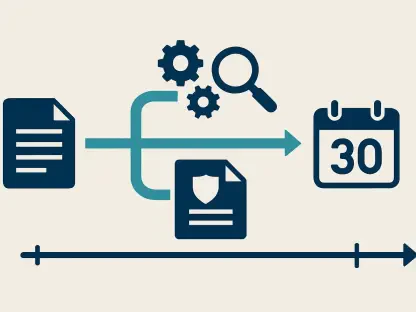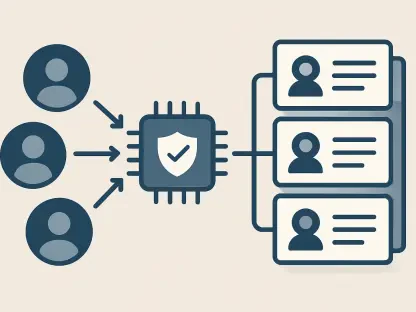In the complex landscape of Florida’s homeowners’ insurance, a pivotal legal decision has emerged that affects both insurers and policyholders regarding property repair management. This ruling, with the case of People’s Trust Insurance Company and homeowners John and Lois Abraham at its forefront, examines the debated legality of managed repair provisions in insurance policies. Through the lens of this case, the court’s interpretation underscores insurer authority to dictate repairs via policy language, even when contested by homeowners. The implications of this legal precedent reverberate throughout Florida’s insurance sector, ushering in clarifications on the enforcement of policy terms and the execution of repairs.
Appellate Ruling and Insurer Authority
Legal Legitimacy of Managed Repairs
The appellate court’s decision reversed a prior ruling that favored the homeowners, reestablishing People’s Trust’s power to manage property repairs through an established “option to repair” clause. The ruling clarified that this clause permits the insurer to oversee the repair process in lieu of providing cash settlements. The homeowners, John and Lois Abraham, challenged this approach, citing concerns over Rapid Response Team LLC’s licensure for roofing, a task related to their repair needs. The legal contention arose not simply from dissatisfaction with the selected contractor but on the premise of compliance with Florida law that dictates specific licensure requirements for roofing activities.
The Second District Court of Appeal addressed these concerns by interpreting the scope of a general contractor’s capabilities in Florida. It concluded that while a general contractor may not perform specific roofing tasks, it can effectively oversee such projects by subcontracting licensed professionals for the actual labor. This interpretation reinforced the insurer’s decision to appoint Rapid Response Team LLC, even without direct roofing licensure, provided that its subcontracting aligned with legal standards. The court also corrected misinterpretations related to proof of licensure requirements, focusing on the insurer’s obligation to ensure that these subcontractors hold valid licenses, but not to present these licenses directly unless formally requested.
Policy Terms and Insured Obligations
The court’s ruling emphasizes the necessity for homeowners to comply with insurance policy terms, which often include cooperation with managed repair initiatives. By affirming the insurer’s right to orchestrate necessary repairs under the policy’s terms, the decision strengthens the enforceability of such clauses. People’s Trust’s legal victory underscores the conditions under which managed repair provisions can be applied, confirming their legitimacy when clearly articulated and consistent with statutory law. The appellate court’s interpretation ensures a smoother repair process, thereby mitigating potential disputes between policyholders and insurance companies.
Broader Implications for the Insurance Industry
Trends and Consensus Among Insurers
This decision represents a significant moment for the Florida property insurance market, signaling broader trends and consensus favoring insurers regarding repair disputes. The appellate court’s decision illustrates the judiciary’s support for the clear articulation of insurer roles within policy terms, thereby encouraging insurers to uphold and enforce these terms when disputes arise. This ruling provides a reliable legal framework for insurers seeking to manage repairs, minimizing contention and preserving policy intentions. By emphasizing the cooperation required from policyholders, the court’s stance may decrease future litigation over repair processes.
Legal Framework and Repair Disputes
In the larger context of Florida’s property insurance landscape, this case provides crucial insights into navigating the complex intersection of policy language, consumer rights, and statutory obligations. The legal framework highlighted in this decision offers insurers a blueprint to establish provisions that can withstand legal scrutiny if challenged. This standard enables a more efficient resolution of repair issues, reducing the frequency and duration of legal battles. The court’s guidance on licensure and subcontracting practices serves as a reference for similar cases, establishing a precedent that shapes future policy development and dispute resolution processes within the industry.
Considerations Moving Forward
Navigating Policyholder Rights
The appellate court’s decision crystallizes the responsibilities and rights of both insurers and homeowners under the scope of managed repairs, offering valuable lessons for both parties. Insurers are encouraged to draft comprehensive and transparent policy terms that clearly outline repair processes and the roles of third-party contractors. Homeowners, on the other hand, are urged to understand their obligations under these policies to avoid disagreement. This decision paves the way for improved communication and expectation management between insurers and insured parties, potentially reducing repair disputes in the future.
Strategic Approaches for Insurers
In the intricate sphere of homeowners’ insurance in Florida, a significant legal ruling has surfaced, impacting both insurance companies and policyholders concerning property repair management. The case at the center of this ruling involves People’s Trust Insurance Company and homeowners John and Lois Abraham, specifically analyzing the contentious issue of managed repair clauses within insurance contracts. Through this case, the court highlighted the power insurers possess to control repairs as outlined in policy wording, even when homeowners challenge this authority. The outcome of this legal decision has far-reaching consequences across Florida’s insurance industry, providing much-needed clarity on the enforcement of insurance policy terms and how repair works are carried out. This legal precedent signifies a turning point, emphasizing the insurers’ ability to enforce managed repair provisions, thus ensuring adherence to policy terms and setting a clearer path for future interpretations within the insurance sector.









